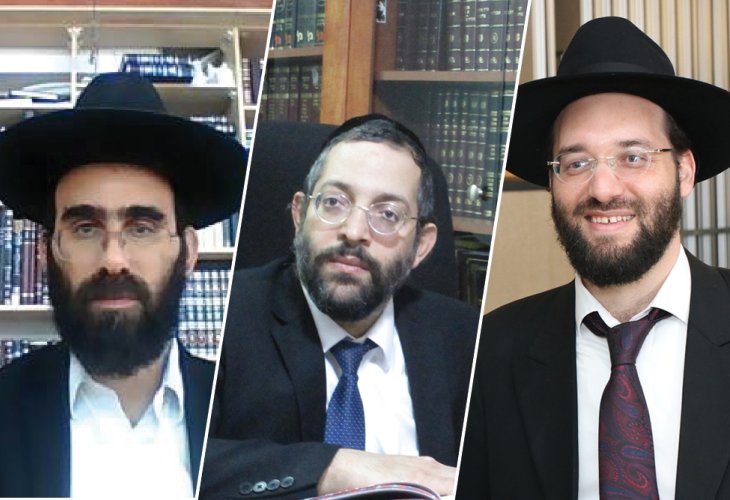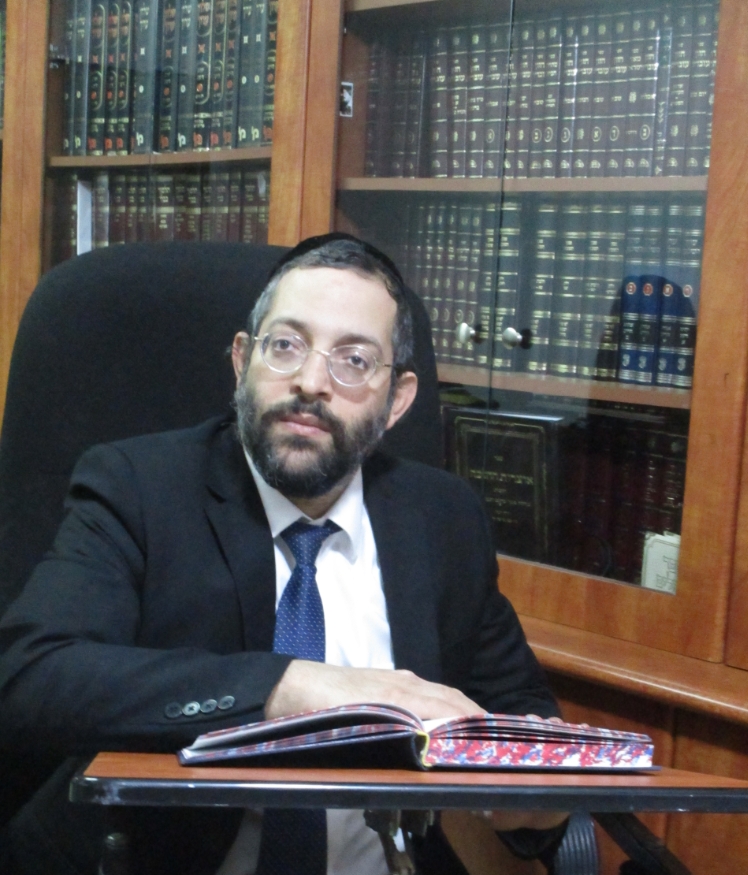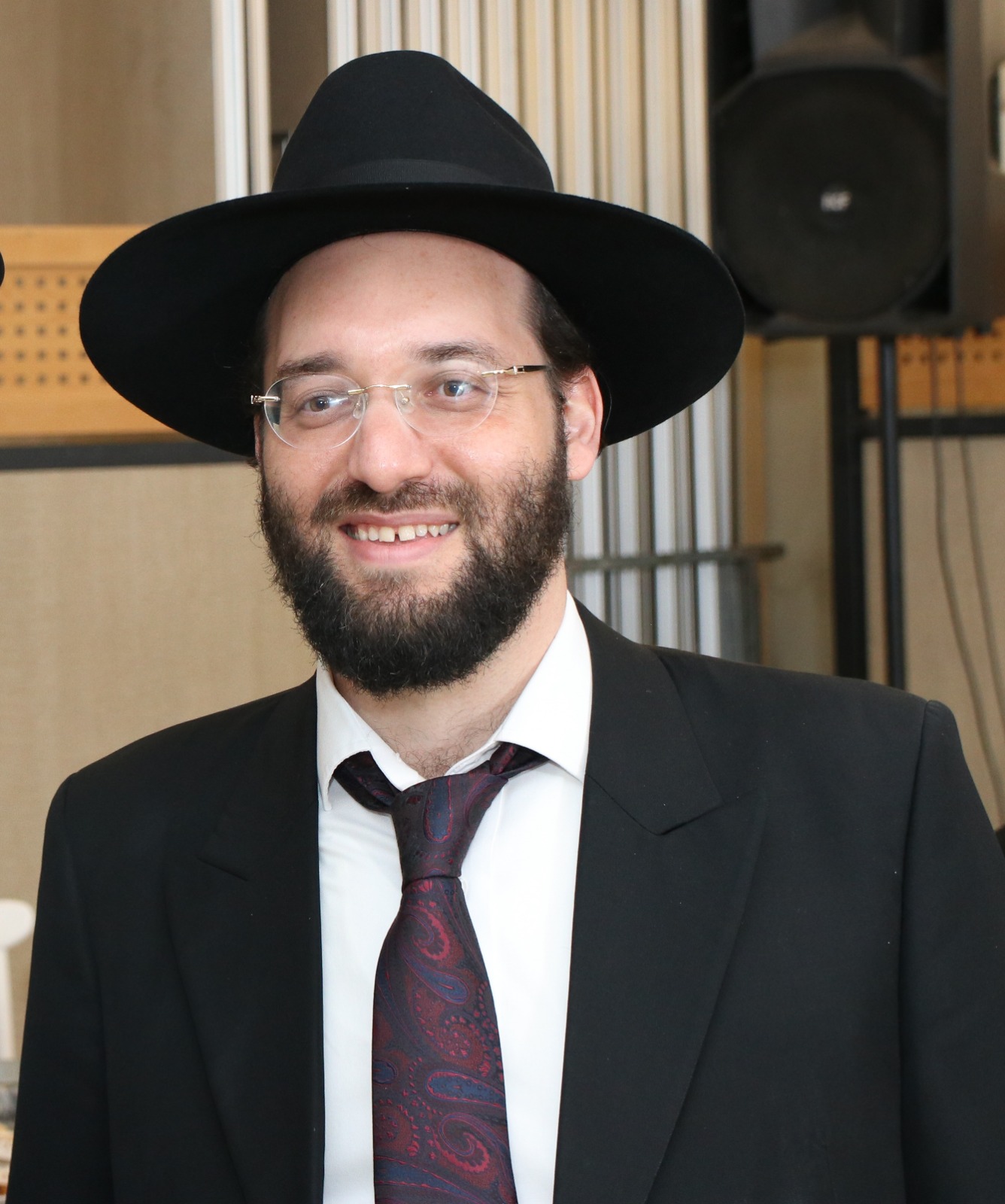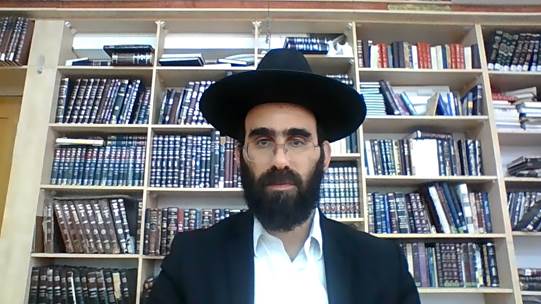"Rabbi, I Forgot to Sell Chametz"; 'Halacha Line' Rabbis Reveal Pre-Passover Questions
Why did a housewife call the rabbi five minutes before the holiday started? What concerned the 13-year-old preparing for his first proper seder? And how do you answer someone who asks dozens of questions in two hours? We heard from leading rabbis about the most frequent questions during the days leading up to Passover, and of course, the answers.

"Honorable Rabbi," said the slightly distant voice on the other end, filled with apprehension, "I wanted to ask a question."
Rabbi Meir Yarchi, Rabbi of Aharon Chaim Synagogue in Bnei Brak, head of the Shaarei Tzion kolel, and author of 'Otzarot HaHalacha' and 'Shu"t Reyach HaBosem', knows these kinds of phone calls well. Over the years, he has been answering questions on the Halacha line as part of his position. However, he realized that this question was going to be slightly different, and he was not mistaken. "Rabbi, I don't live in my own home and need to know if I should recite a blessing for the chametz inspection I'm doing."
 Rabbi Meir Yarchi
Rabbi Meir YarchiThe unusual phrasing led the rabbi to gently probe further: "What do you mean?" Only then did the truth come out: "I am a prisoner in Ma'asiya Prison, but I don't want to miss the chametz inspection. The question is whether I need to bless it since it's not my private house."
Rabbi Yarchi provided an answer based on the specifics of halacha. The call ended, but soon after, the phone rang again with another question, this time from the army. "One of the serious soldiers in the battalion wanted to know if they needed to sell the chametz, even though it had already been sold on their behalf, as he had several reasons to think there was a need to be strict," the Rabbi reports. "In his case, I explained he could be lenient. We ended the call with him expressing relief and ready to pass on the information to his soldiers who could observe Pesach properly."
A minute later, the phone rang again, this time it was a well-known community rabbi from Argentina, seeking advice on a complex issue regarding the calculation of 'kezayits' of matzah during the seder night.
"Jews from around the world call at all times and hours," Rabbi Yarchi says excitedly. "Since the beginning of the month of Nissan, we have been receiving questions continuously without a break. It ranges from people who are at the earliest stages of returning to religious observance to community rabbis who seek to ask complex questions and hear about sources from the poskim. In addition, there are housewives who contact us with questions regarding kashrut and cleanliness of the home. Truly, from all types and manners."
Endless Demand
"There are several dates in the year when we encounter unusual demand in calls to the Halacha line," says Rabbi Hanan Nahum, head of the Torah of Aram Tsobah kolel, a dayan, and a posek. "On the eve of Yom Kippur for instance, there are a lot of calls, as well as on the eve of Sukkot. But what we saw here last week is unprecedented, even compared to previous Passover eves."
 Rabbi Hanan Nahum
Rabbi Hanan NahumThe rabbi shares: "I can't be available 24 hours a day for phone calls, so I advise those who come to me in person and answer written queries from people online. I see firsthand how people write questions all around the clock. Sometimes I check the software at 2:00 AM or 5:00 AM and find waiting questions. Often these are very urgent, where people ask for an immediate answer. I am pleased to respond as quickly as possible. This service is a real rescue for them."
He smiles for a moment, remembering: "I visited the bank this week, and the clerk asked about my position. When I told her I answer people's halachic questions, she immediately asked her own question and was so pleased to get a response. This shows how much people are seeking answers and need them."
Rabbi Aharon Shitrit also answers through the Halacha line – a well-known line managed by Rabbi Eliyahu Shushan and overseen by Rabbi Yaron Ashkenazi. "The phone does not stop ringing," he says, "we have all added extra hours of response time, and some rabbis answer in seven languages, at any hour. I heard from Rabbi Eliyahu Shushan say that today, for example, by 1:00 PM, rabbis had answered over 1,000 questions. There are days when it reaches over 3,000 questions in a whole day."
 Rabbi Aharon Shitrit
Rabbi Aharon ShitritBut why is it that suddenly there are so many questions now?
"Passover laws are very numerous," Rabbi Shitrit clarifies, "such as preparing utensils for the holiday, selling chametz, and anything else related to preparing for Pesach."
Rabbi Yarchi notes that at the beginning of Nissan, the questions primarily focused on cleaning for Pesach. "People wanted to know how to prepare utensils and electrical devices, especially ovens," he shares. "The issue becomes tricky when an oven has a turbo function, requiring specific preparation methods. Common questions often involve new market items, like ceramic stoves, which have recently become very popular. I explain to those interested that ceramic stoves are akin to glass utensils, and according to Rabbi Yosef Yitzhak's new book 'Yalkut Yosef on Pesach', even if copper is mixed in, we look at the majority material. Additionally, many want to know how to prepare the grill. The standard response is that it is preferable to have a grill specifically for Pesach, but if not, the grid should be blowtorched. While questions are numerous, many repeat themselves, so we are entirely prepared."
"Some people stay very close to us during the cleaning," adds Rabbi Nahum, "and I notice they log on dozens of times within a few hours to ask questions. At first, this requires a lot of patience from me, to answer each time anew. But in such cases, I have seen that eventually, they learn, and questions become fewer. It's very exciting to see that."
Thousands of Conundrums
Rabbi Yarchi mentions one common question he recently received, concerning a specific type of dog and parrot food. "I received a call from a woman who felt very uncomfortable. She said to me: 'Rabbi, I really don't want to bother you with such questions right before Passover, but I must, absolutely must have an answer.' After all her disclaimers, I was curious about where she was headed. Then it became clear she was asking about her dog. She explained that she is very concerned about him and can't bear the thought of him not eating his favorite food for an entire week. She kept apologizing, but I assured her that this is actually an excellent question, and together we examined the composition of the dog food to see if there was room to be lenient.
"Interestingly," adds Rabbi Nahum, "often the questions come from people who, during the regular year, are quite secular, but when it comes to Passover, they desire to observe it properly. This year, I encountered several individuals who told me this would be their first Pesach they plan to fully observe, and they want to know how to do it correctly. There were also those who had observed in the past but now wish to take on more in terms of kashrut and other matters."
"The most frequently asked question this year concerns Pesach eve that falls on Shabbat," shares Rabbi Shitrit. "People are asking when to do the burning of chametz, what to eat for the first, second, and third meals, whether matzah is considered muktzeh during Shabbat, and other questions of the like."
There are also questions regarding the seder night and the holiday itself. "They ask about the size of a kezayit, the weight of the matzah, what blessing to say over matzah ashirah, and so on."
"I recently encountered a woman who grew in her religious observance, while her husband and children remained secular," recalls Rabbi Yarchi. "Her husband wanted to spend Pesach with his parents, but since they do not adhere to kashrut and halachic laws, she wanted to know if she could sit with them at the table. Naturally, I provided her with the precise halacha, explaining that in such a case she must not cause marital issues, she is allowed to join them, and may even eat some dishes, but must be aware of certain key points, which I detailed fully."
Conversely, Rabbi Shitrit shares with a smile incidents where yeshiva students called in the middle of baking matzah needing to know urgently if the matzah had become chametz or not.
Regarding halachic questions related to the seder night, he notes he studies and delves into the topic over a month before the holiday, so he is prepared to answer any question, especially during such a busy time when the inquiries are numerous and countless.
Occasionally, there are questions he cannot answer immediately. "Today, for example, I was asked how a person with Alzheimer's may sell chametz," he shares, "and I also encountered a question about a material called 'broccolis' produced in a bee hive. While broccolis itself is permitted on Passover, because it often comes mixed with alcohol, it can pose a problem. These issues require research to provide confident answers. I have, of course, passed them on to great rabbis to deliver the most precise answers."
The Overly Stringent Corp.
Rabbi Nahum pauses to address an important point: "There is a phenomenon of people being overly stringent beyond what is necessary," he states. "Their intentions are certainly good, as they truly wish to go above and beyond, but sometimes it stems from a place of compulsion, known as OCD. When I recognize this, I try to inquire further and, if necessary, refer for treatment. Observance of halacha is crucial, but asking hundreds of questions over one topic could be problematic."
Rabbi Yarchi also encounters people who try to be stringent without real need. "Sometimes, I hear about families who face real marital problems because one partner wants to be stringent while the other opposes it. I sometimes stress and say - 'This is stringency; there is no need to insist.'"
According to Rabbi Shitrit, the variability sometimes affects life-or-death matters. "There are diabetics who restrict themselves, deciding to fast during the Fast of the Firstborn, or those who cease taking essential medication over Passover, fearing they contain chametz. Certainly, the Torah does not require harming one's health, and it is forbidden to make such decisions without consulting a qualified rabbi. I do not suggest taking leniency lightly, but any such matters should be thoroughly investigated and not be strict unnecessarily."
Often, a complete story lurks behind the asker's question. "A woman contacted us with several questions concerning Pesach where she lives, and they seemed quite illogical to me," shares Rabbi Shitrit. "After an exchange, it became clear that she resides in an Arab village and needs urgent assistance. Naturally, I referred her to the appropriate department at Hidabroot. In another case, a young man sought guidance on what to do on seder night, as his family intends to travel and return by car. He is the only one in his family committed to not traveling on Shabbat. Once I understood where they were going, I realized the problem wasn't just with traveling but also with staying at that place. With Hashem's help, within a short time, we arranged for this young man to be hosted at a yeshiva framework for seder night, where he could remain without halachic doubts and enjoy the seder properly."
And Rabbi Yarchi recalls a child who contacted him. "He told me he was preparing for the seder night, but his father does not ensure clean lettuce, instead purchasing whatever is available in the market. He wanted to know what to do and how to eat the maror. I took the opportunity to inquire about him and understand his background. In his case too, I referred the information to a very special Torah scholar who has been guiding and supporting him ever since that day. It's amazing to think it all started with a question leading up to Pesach."
Who is like Your People, Israel
According to the rabbis, questions come until the very last moment, just minutes before the holiday begins. "Each year, on the eve of the holiday I receive several customary questions from those who remember in panic they forgot to sell the chametz," says Rabbi Nahum. "It is a big problem. Our instruction in such a case is to remove actual chametz from the home, and concerning the rest of the chametz - it should be nullified. But this is not straightforward or ideal. Overall, we strive to find solutions to the questions and it's touching to see that even when no solutions exist, those who reach out accept this completely with understanding."
Rabbi Shitrit adds: "Each year, as I enter the holiday, within minutes of finishing responding to the last question, I say: 'Master of the Universe, see the beauty of the Jewish People, how everyone desires to fulfill Your will; see those who struggle to chew matzah yet seek ways to moisten it, or even resort to eating only matzah meal; see those who conduct a seder alone for the first time in their lives, researching every detail to do it correctly; see the housewives working for days and nights to remove any trace of chametz. Master of the Universe, be proud of Your children.'
The Halacha Line phone number: 073-3333-300, available 24 hours a day in 6 languages - Hebrew, English, French, Spanish, Russian, and Persian.

